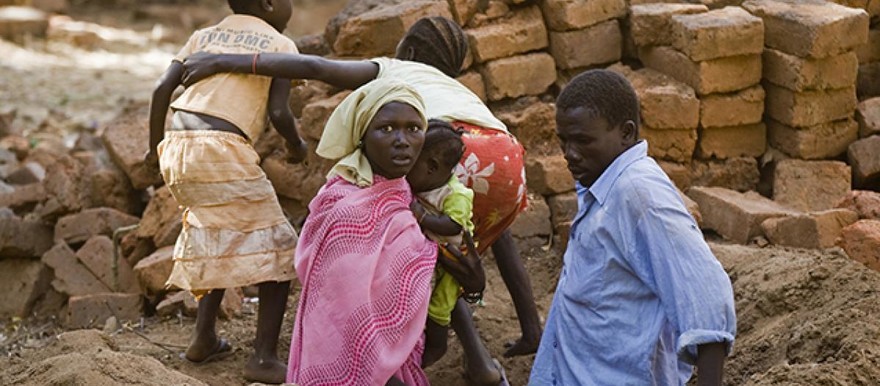Government forces in Sudan have committed war crimes against the civilian population of South Kordofan, according to international human rights body Amnesty International.
In a report published yesterday, Amnesty International said that the Sudanese Air Forces deliberately targeted civilian infrastructure and that ground troops attacked civilians in South Kordofan state. The report, “Don’t we matter? Four years of unrelenting attacks against Civilians of Sudan’s South Kordofan State“, emerges from the results of a field mission Amnesty carried out in May 2015.
The civilian infrastructure targeted includes schools and hospitals. The Médicins Sans Frontières (MSF) hospital in Farandallah, the Nuba Mountains, was bombed on 20 January this year, and a hospital in the same village on 16 June 2014. MSF said that this attack took place despite the Sudanese government’s knowledge of the hospital location and its activities.
“Targeting civilian infrastructure and civilian areas which have no legitimate military objective, using prohibited weapons and other weapons in an indiscriminate way, are war crimes,” says Michelle Kagari, Amnesty International’s Deputy Regional Director. “It is time for the international community to stop averting its gaze from South Kordofan and take urgent action to end this conflict.”
374 bombs on 60 locations
The use of prohibited weapons – such as cluster bombs – launched from highaltitude, has resulted in civilian casualties. Amnesty found cluster munitions at four sites in two separate locations in Dalami (in South Kordofan’s northern part) and Um Dorain (south-east of Kadugli) and heard testimony of how children have been killed playing with unexploded ordinance.
The army has denied the use of cluster bombs, which are prohibited according to the international convention of 2008. Nuba Reports, however, produced a video showing the remains of such bombs in Kauda last May.
Between January and April 2015, the Sudanese Air Force dropped more than 374 bombs on 60 locations across South Kordofan under the control of the rebel Sudan People’s Liberation Army-North (SPLA-N). The aerial bombardments and ground shelling over this period resulted in the deaths of at least 35 civilians, injured a further 70 individuals, and damaged civilian buildings including schools.
Since the beginning of the conflict in 2011, 26 health facilities (hospitals, clinics and health units) have been bombed in SPLA-N controlled areas, some of which were clearly identified with flags and crosses on their roofs. Only two out of four hospitals in SPLA-N controlled areas are still functioning.
Afraid to farm
The bombing campaign has left many afraid to work their fields with devastating consequences for food security, according to the Amnesty report. The intensification of bombings during harvest time and the planting season raises concerns that this might be part of a deliberate strategy by the Sudanese government to hinder people’s ability to cultivate crops.
“We haven’t planted anything for the past two years. We couldn’t because we had to run away. We are too afraid to work in our fields,” Salha, a displaced woman at the Kimli site, told the field researchers.
Fighting erupted between the Sudanese army and the SPLM-N in June 2011. Despite efforts of the African Union mediation panel (AUHIP) to end the conflict, the two parties have failed to negotiate a ceasefire or a peace agreement.
Photo: A family comes out from a foxhole where they hid when 12 bombs were dropped in Kauda town, destroying three houses, and injuring one man in South Kordofan, Sudan, 2015 (Giovanni Diffidenti)




